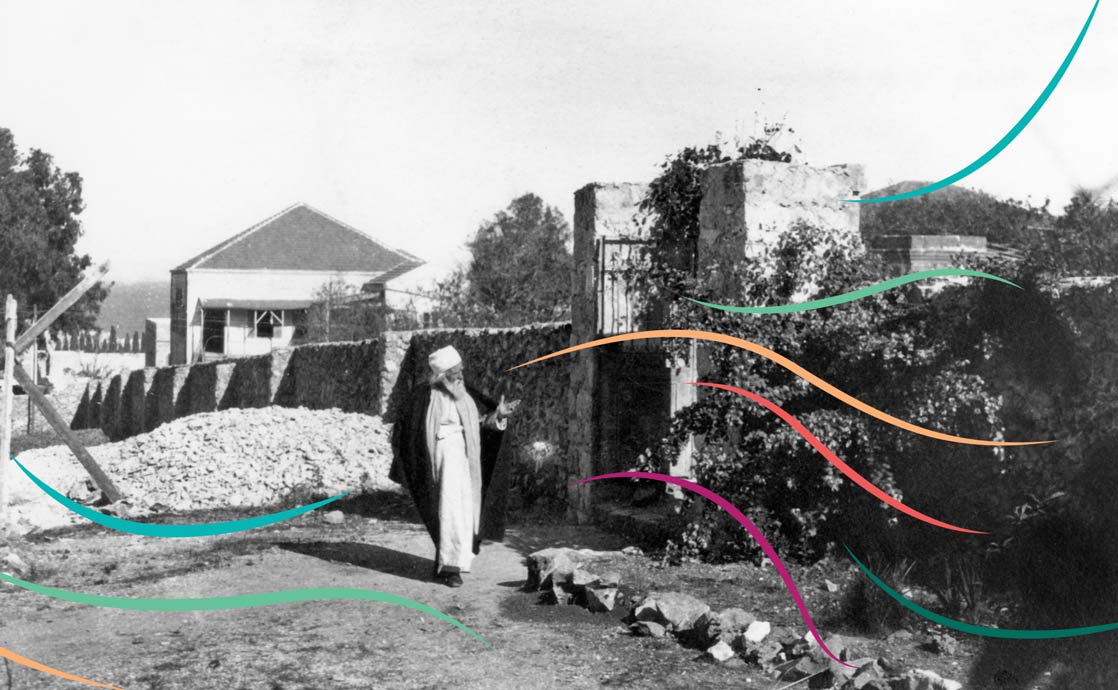Baha’i teachings present a comprehensive philosophy that fundamentally seeks to unify humanity through spiritual and ethical imperatives. A pivotal figure within this context is Abdu’l-Baha, the eldest son of Baha’u’llah, who is regarded as a central interpreter of his father’s revelations. His extensive works and teachings not only elucidate the principles laid out by Baha’u’llah but also underscore their unparalleled nature in the realm of religious discourse. This article aims to explore Abdu’l-Baha’s profound contributions and the resonant implications of Baha’u’llah’s teachings, illustrating their comprehensive and transformative nature.
At the core of Baha’u’llah’s revelations rests the concept of the oneness of humanity, a tenet that fundamentally redefines traditional notions of belonging and community. Abdu’l-Baha expounds on this principle through various lenses, examining its implications for social and political structures. For instance, he frequently addressed the necessity for global governance, highlighting the inherent interdependence of nations in an increasingly globalized world. His advocacy for collective peace and harmony underscores a radical shift from nationalism towards universalism, essentially positioning the idea of a united humanity as a precursor to sustainable progress.
Another critical divergence from conventional religious teachings encapsulated within Baha’u’llah’s doctrine is the progressive nature of religious truth. Unlike static interpretations that characterize many historical religions, Baha’i belief posits that divine revelation is a continuous and evolving process. Abdu’l-Baha elucidates this by articulating the notion that as humanity matures, so too does its understanding of spiritual truths. This conceptual framework calls for adaptability and receptiveness toward new interpretations, fostering an environment for intellectual and spiritual growth. It is a call to arms for the educated elite to cultivate a worldview receptive to evolution in spiritual discourse.
Within the Baha’i teachings, Abdu’l-Baha delineates the transformative potential inherent in education, asserting it as a means to elevate society. He emphasizes that true education extends beyond mere intellectual achievement; it encompasses moral and spiritual dimensions. This holistic approach to learning advocates for the cultivation of virtues, such as compassion, justice, and integrity. Abdu’l-Baha’s writings champion the empowerment of women, recognizing education as a key to alleviating societal injustices, thereby highlighting the dual role of education as both personal development and a vehicle for social change.
Furthermore, Abdu’l-Baha’s discourse on individual responsibility complements the collective ethos of Baha’u’llah’s teachings. He underscores that each individual’s actions resonate on a broader societal scale. This perspective inherently counters fatalism, advocating instead for proactivity and conscious engagement with one’s community. It promotes the concept of service, wherein individuals contribute to collective well-being through acts of kindness and altruism. By framing selfless service as a spiritual duty, Abdu’l-Baha compels adherents to consider their roles in achieving global harmony.
Abdu’l-Baha’s writings also delve into the significance of the arts and sciences as means to reflect the divine. He asserts that both realms are manifestations of the Creator’s will and serve as vital instruments in enhancing human experience. The teachings encourage the pursuit of excellence in all endeavors, positing that innovation and creativity stem from a deep spiritual connection to the divine source. Such views promote a synthesis of spiritual and material advancement, urging followers to engage in scientific inquiry and artistic expression as a form of worship.
The architectural evolution of Baha’i institutions during Abdu’l-Baha’s ministry further illustrates the practical application of these teachings. These institutions embody principles of consultation, collective decision-making, and inclusivity, reflecting Baha’u’llah’s vision for a new social order. By establishing an administrative framework that transcends conventional hierarchies, Abdu’l-Baha engenders a participatory culture among followers. This paradigm shift from autocratic religious governance to democratic processes effectively redefines leadership, framing it as a service-oriented role rather than a position of privilege. The hands-on nature of Baha’i administration invites a diverse array of voices into the decision-making process, thus reinforcing unity in diversity.
Moreover, a salient theme in Abdu’l-Baha’s writings is the recognition and appreciation of diversity as a divine attribute. Through various discourses, he addresses the significance of cultural plurality, urging followers to cherish and uphold the unique contributions of different societies. This perspective not only nurtures mutual respect but also fosters dialogue among disparate cultures, furthering the mission of world peace. Abdu’l-Baha’s approach effectively critiques monolithic cultural narratives, advocating instead for a global dialogue that prioritizes shared humanity over divisive affiliations.
In conclusion, the synergy between Abdu’l-Baha’s interpretations of Baha’u’llah’s teachings and their practical implications reveals a profound understanding of contemporary challenges. His unequivocal advocacy for the oneness of mankind, the imperative for education, the role of service, and the embrace of diversity demonstrates the contemporary relevance of Baha’i principles. The myriad dimensions of these teachings encourage an enlightened perspective that seeks to unite rather than divide, fostering a collective consciousness geared toward global progress. As we navigate the complexities of an interconnected world, the applicability of these timeless teachings becomes ever more apparent, illuminating pathways toward unity and understanding.
